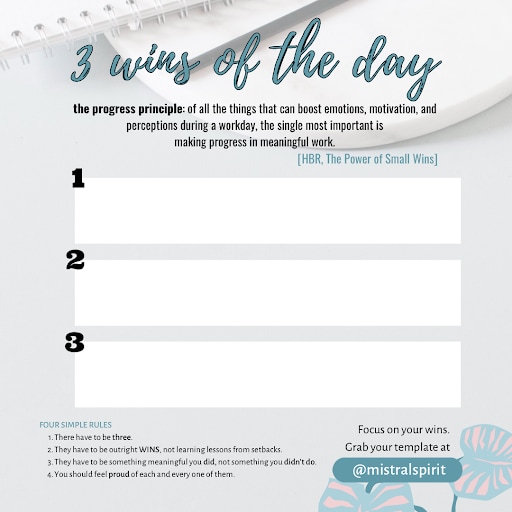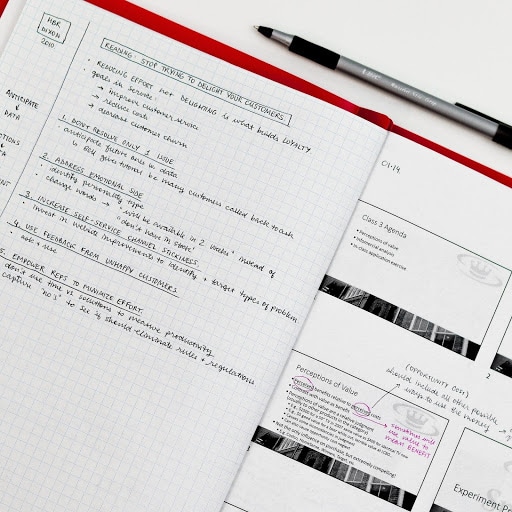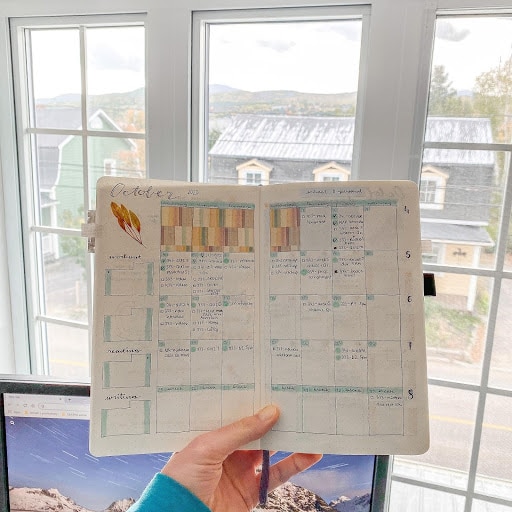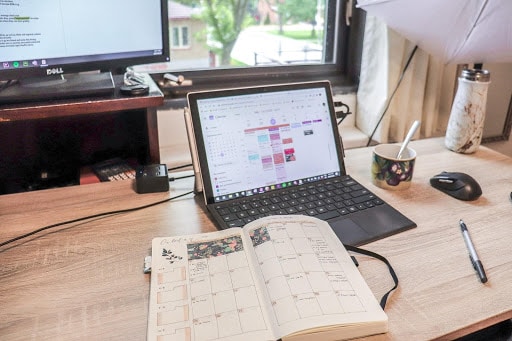3 unique study strategies for Maths, Humanities, or Sciences

Ioana Pitu, Queen’s University student and founder of Mistral Spirit, shares 3 approaches for your studying strategy this semester.
Evaluations of any kind can feel overwhelming. Especially so if you’re a full-time student with many courses, extra-curriculars, part-time jobs, and personal goals to juggle while dealing with approaching deadlines. The key to being successful is keeping your studying as strategic, practical, and organized as possible. And, depending on the courses you’re taking, these strategies will take different forms!
In this blog post, I’ll walk you through 3 new strategies for you to try based on the subjects you are studying: mathematics, humanities, and sciences.
Before we get to the nitty gritty strategies, the thing we’ll need to master first is confidence. If you’ve learned the material already throughout the semester and been to class, the only thing standing in your way is your confidence. Doing practice questions, knowing what you’ll be tested on inside-out, and ensuring you haven’t missed any of the material will boost your confidence in advance of testing time. This is especially great to keep in mind if you often get nervous or anxious before a big exam.
And if you haven’t been keeping on top of the material - that happens too, and it’s okay! - then remember to keep things simple. Don’t overcomplicate the studying. Instead, focus on what’s important, what you are being evaluated on, and be smart about what you spend the most effort on.
My favourite approach to manifesting this anti-stress mindset is to focus on each day’s accomplishments, or Wins. This is a practice you can do at the end of every day leading up to your exams in your journal, diary, or on your Instagram stories! Grab your very own Wins of the Day template below and stay accountable by filling it in and re-posting it daily:

As for the studying strategies, here are 3 that will get you started on collecting some new Wins of the Day, boosting your confidence and acing your exams!
“Focus on what’s important, what you are being evaluated on, and be smart about what you spend the most effort on.”
Maths
The number one study strategy in maths-centered courses will always be completing practice questions, because they get you to practice your brain’s retrieval process. It’s one thing to recognize information, but recalling it is ultimately what you’ll be required to do on a test or an exam.
You can also take practicing retrieval to the next level by actually teaching the content, either verbally or by writing it out in a study guide. You don’t need anyone to do this with - if you’d like, set up a solo Zoom call and write on a “whiteboard” as though you were teaching an online class!
“It’s one thing to recognize information, but recalling it is ultimately what you’ll be required to do on a test or an exam.”
Teaching has also been proven to be a highly effective study method. In a 2014 study titled “Role of expectations and explanations in learning by teaching”, the researchers found that “preparing to teach coupled with actually teaching led to greatest long-term learning”.

Recording your teaching session or writing it in a study guide can also be helpful if you’re studying something that you’ll want to reference again in a few years, or something that’s really complex and you’ll need a refresher on for the next test or the final exam!

Humanities
Talking about your humanities course content is a really fun way to practice explaining what you’ve learned, but it can also help you manage your expectations in advance of a test or exam.
Maybe there’s an area of the material that you never really considered very important, and you realize you should focus on it more in the time leading up to your evaluation. Or, you might realize that you’re actually more prepared than you thought you were and build up your confidence that way!
You don’t need a classmate or peer to put this study strategy into practice. Choose a discussion question that is topical and you’ll be able to keep a friend or family member interested, too! You might even gain a different perspective from someone who hasn’t taken your course, but has read material that relates to it in some way and helps you see the bigger picture in your course.

Sciences
Flashcards are the ultimate blend between practice questions, mind-mapping, and active recall. Bonus points if it’s pre-made or doesn’t take you much time to set up, and you’ve got a study strategy that is perfect for the sciences.
Pearson Canada’s free flashcard app has lots of pre-made decks so you can study from Pearson textbooks directly on your phone or laptop. You can also upload your own notes completely free using their auto-upload feature, and access them from anywhere. That way, you can get in your practice time to study when you’re commuting or taking a lunch break.

Image Credit: Marisa Wong
“Flashcards are the ultimate blend between practice questions, mind-mapping, and active recall.”
Are you ready to start studying? My last bit of advice is to use the odds and ends of time. Make your time count, and use your phone to review notes, test yourself with Pearson Prep flashcards, or bring your visual mind map along with you on a walk to practice active recall.

For more of Ioana Pitu’s study strategies, take a look at her most recent YouTube video, “9 exam study strategies for smart & efficient revision”:

Ioana is a Queen’s Commerce student with a passion for visual storytelling and lifelong learning. She is known for the creativity she injects into everything she works on, her organized, detail-oriented work ethic, and the people-driven, entrepreneurial spirit that drives many of the projects she undertakes.
No challenge is too big for Ioana – she manages her current YouTube business with an audience of 50k subscribers and several ongoing brand partners while maintaining her dedication to her academic studies, contributing innovative ideas to a Queen's business course as a TA, and spending her free time as a brand & strategy consultant for two ongoing clients.